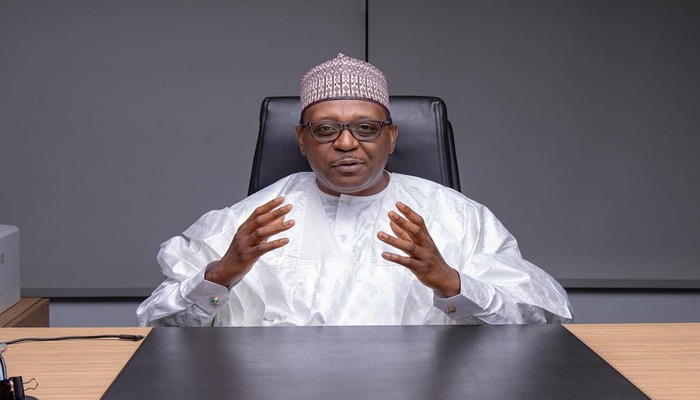In the first year of President Bola Tinubu’s administration, bold healthcare reforms have not only sent a clear signal to investors but have also attracted over $4.8 billion in potential investments.
These reforms demonstrate the administration’s commitment to revitalizing the sector with a well-defined roadmap.
However, Nigerians are eager to see tangible impacts in curbing rising medication and treatment costs, reducing hospital waiting times, addressing shortages of healthcare workers, and expanding health coverage to vulnerable Nigerians increasingly affected by worsening economic conditions.

Under the leadership of Muhammad Ali Pate, the Coordinating Minister of Health and Social Welfare, the administration has unveiled a series of reforms structured around four pillars: transforming healthcare governance, improving population health outcomes, unlocking the healthcare value chain, and enhancing health security.
Pate’s progress report indicates ongoing efforts to achieve the goals set under each of these pillars, though many initiatives are expected to take years to materialize.
To unlock the healthcare value chain, the government has initiated efforts to boost domestic production of drugs, medical devices, and consumables. The minister has engaged with key stakeholders in two consultative forums over the past five months to drive comprehensive solutions, including the drafting of an executive order.
Once signed by the President, this policy will enable Nigerian manufacturers to produce essential items such as syringes, needles, generic pharmaceuticals, test kits, and long-lasting insecticide-treated nets for malaria. Pate has also highlighted plans to shift production of bed nets, currently imported, to local manufacturing, which he believes will promote self-sufficiency and economic growth.
Furthermore, Pate disclosed that one of the world’s largest treated bed net manufacturers is considering establishing a production plant in Nigeria to serve the African market.
Additionally, Pate’s team has secured a commitment from a Brazilian firm to establish a $240 million generic manufacturing plant in Nigeria. Three entities are set to produce test kits, with one already operational in Lagos and two more in progress.
“This marks a significant shift from the past 25 years, where such kits were imported. The policy changes initiated by the President are now fostering domestic production, with more initiatives on the horizon,” Pate stated.
Cyril Usifoh, President of the Pharmaceutical Society of Nigeria, expressed that the government’s willingness to collaborate with the private sector to address challenges in local manufacturing is commendable. He emphasized the importance of turning discussions into concrete actions and anticipates tangible outcomes in the coming months.
Revitalization of primary healthcare centers is another significant reform. Pate aims to double the number of fully functional Primary Healthcare Centers from 8,809 to 17,618 by 2027. To achieve this, approximately N260 billion has been disbursed to states from the Basic Health Care Provision Fund (BHCPF).
States are expected to utilize these funds to refurbish and equip these health centers to provide essential services such as immunization, maternal and child health, treatment of non-communicable diseases, and facilitate referrals to secondary facilities. Pate stressed that guidelines have been provided to assist states in the implementation of projects, ensuring resources are used prudently.
The administration has also implemented measures to improve transparency in fund disbursement, conducting it publicly and establishing a hotline for Nigerians to report misuse of resources. Oversight bodies such as the ICPC and EFCC are encouraged to monitor implementation at the state level.
Despite progress in improving coordination between government bodies, development partners, and the private sector, the Association of Nigeria Private Medical Practitioners (ANPMP) calls for greater involvement of private hospitals in primary care delivery. ANPMP President Kay Adesola emphasized the need to prioritize skilled healthcare workers for primary health centers, rather than focusing solely on infrastructure development.
Pate’s Federal Ministry of Health oversees numerous healthcare facilities and agencies, including teaching hospitals, federal medical centers, and specialty hospitals. The ministry recently announced plans to retrain 120,000 frontline health workers over three years, highlighting its commitment to developing human resources for health and community health delivery.
In terms of vaccination efforts, Pate reported that over five million Nigerian children have been vaccinated against diphtheria using the pentavalent vaccine. More than 10 million children have received tetanus and diphtheria vaccines, with efforts underway to eradicate circulating polioviruses in several states.
Furthermore, measles vaccines have been administered to over 5 million children, while 4.95 million girls aged 9-14 in 15 states have received HPV vaccines to protect against cervical cancer. Plans are in place to vaccinate an additional 6 million individuals across 21 states starting May 27, 2024.
Regarding hospital infrastructure, Pate revealed that federal hospitals have completed 201 infrastructure projects and procured 179 pieces of medical equipment in the past year. He emphasized that federal facilities have served approximately 4.5 million Nigerians through outpatient services and accommodated 1.6 million inpatients.
To address medical tourism, Pate plans to enhance infrastructure, equipment, and training for health workers. The ministry intends to construct six new cancer healthcare centers and has partnered with NSIA to acquire state-of-the-art radiotherapy equipment.
The ministry has also initiated efforts to digitize Nigeria’s healthcare system and improve data collection, appointing a 20-person implementation committee for the digital health initiative.
Despite the ambitious nature of these reforms and the challenges faced, Pate’s leadership and the government’s commitment to healthcare are clear. The reforms have attracted significant investments and partnerships, which could lead to tangible improvements in healthcare delivery and outcomes for Nigerians.
“We have secured a $232 million grant from GFATM, a $200 million philanthropic foundation grant, and expect an additional $60 million in grants. Additionally, the Gavi Alliance has announced $150 million, and we have signed an MOU with Afreximbank for a $1 billion facility to unlock healthcare value chains,” Pate revealed.
Support InfoStride News' Credible Journalism: Only credible journalism can guarantee a fair, accountable and transparent society, including democracy and government. It involves a lot of efforts and money. We need your support. Click here to Donate
